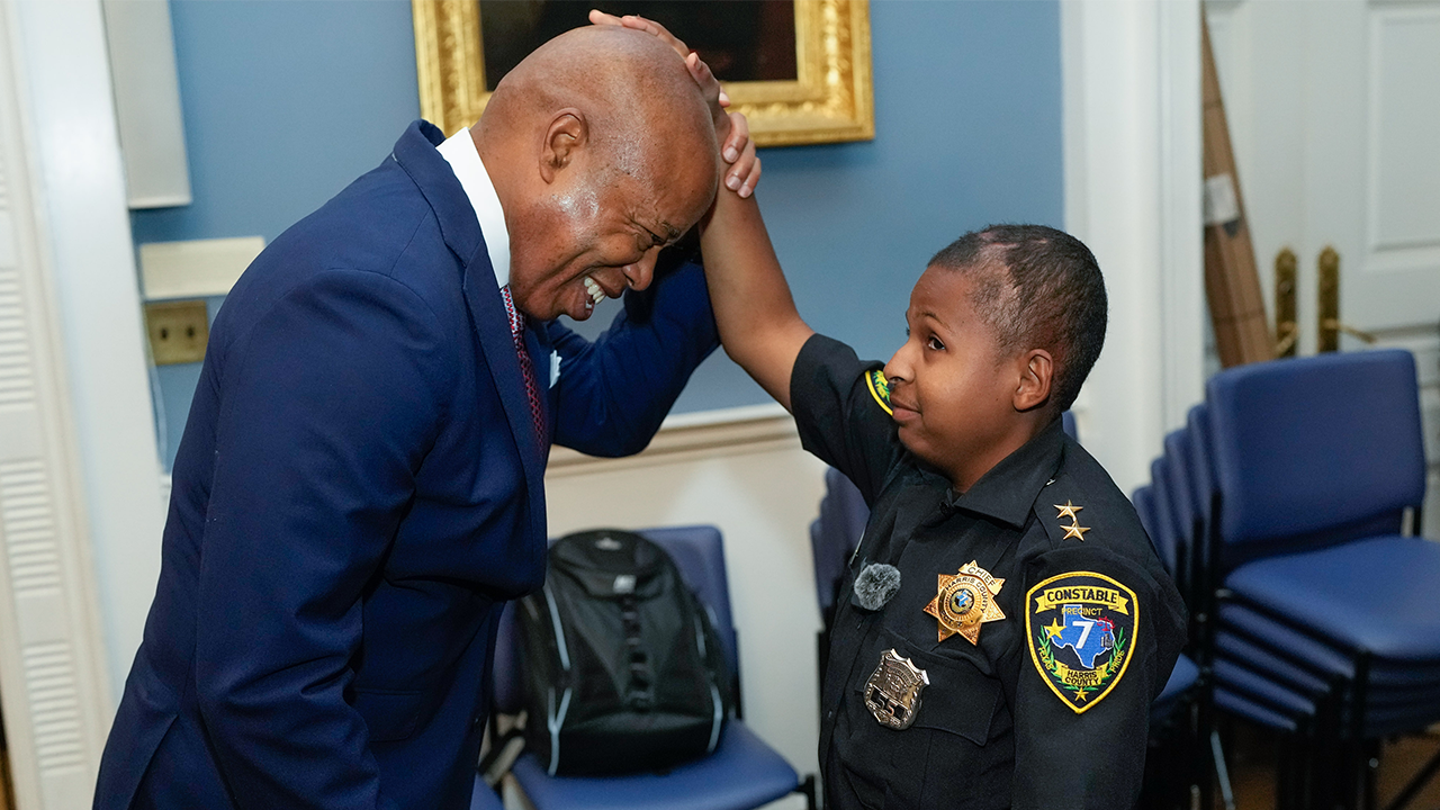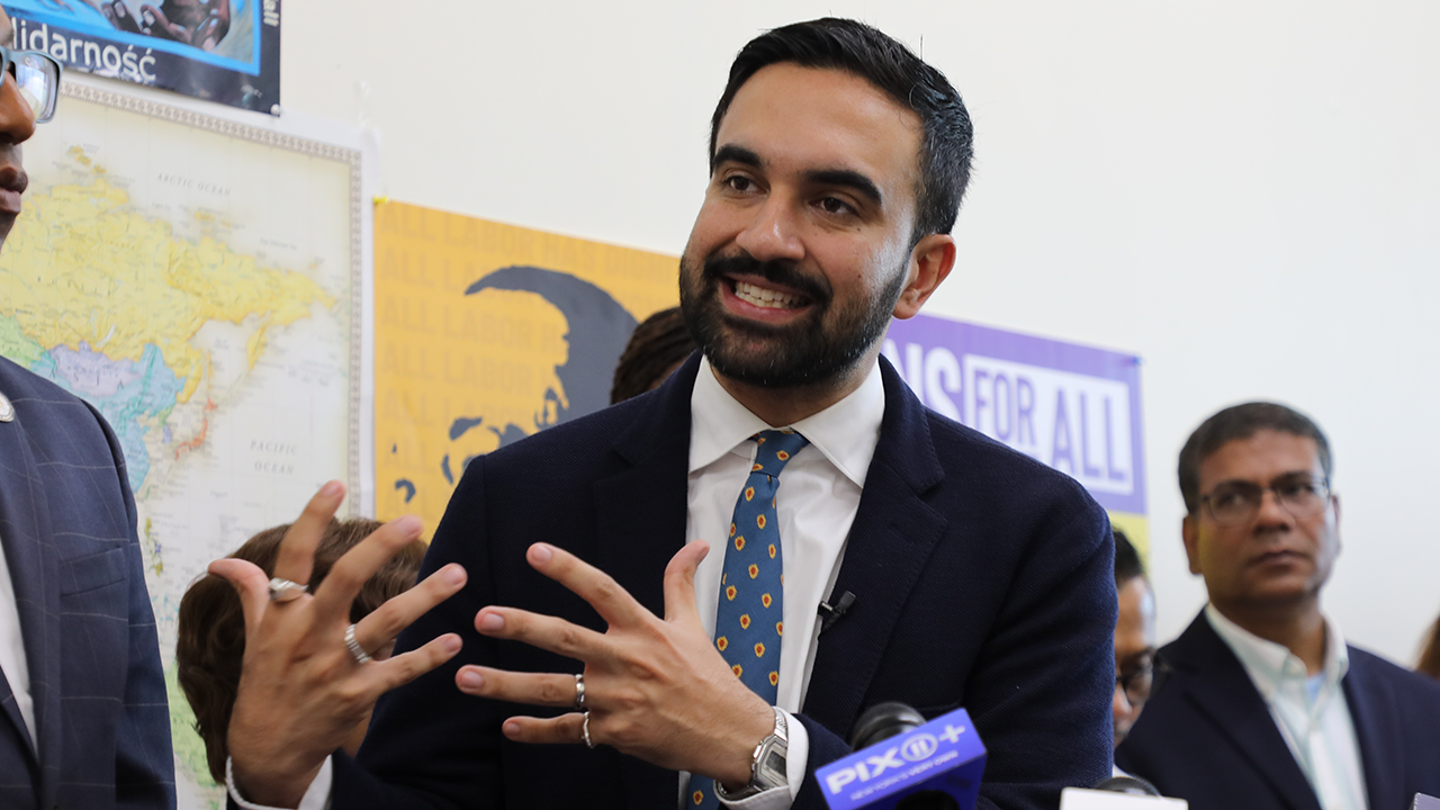
Cracker Barrel's logo mea culpa is a start but it shouldn't be the end
Entities mentioned:
- Cracker Barrel: Self-preservation, Recognition, Professional pride
- Donald Trump: Influence, Power, Recognition
- Uncle Herschel: Legacy, Loyalty, Pride
- Danny Evins: Legacy, Pride, Professional pride
- Sardar Biglari: Professional pride, Competitive spirit, Righteousness
- Don Keough: Professional pride, Duty, Loyalty
- David Ogilvy: Professional pride, Wisdom, Legacy
Article Assessment:
Credibility Score: 55/100
Bias Rating: 75/100 (Lean Right)
Sentiment Score: 35/100
Authoritarianism Risk: 45/100 (Mixed/Neutral)
Bias Analysis:
The article leans right, evidenced by its criticism of 'woke' corporate policies and positive framing of traditional values. It prominently features Trump's statements and conservative viewpoints, while presenting progressive initiatives negatively.
Key metric: Consumer Confidence Index
As a social scientist, I analyze that this article highlights the tension between traditional brand values and modern corporate social responsibility initiatives. The Cracker Barrel logo controversy serves as a microcosm of larger cultural debates in the United States. The swift reversal of the rebranding decision, influenced by customer backlash and political commentary, suggests a significant impact on consumer confidence. This incident demonstrates the power of consumer sentiment in shaping corporate decisions and the delicate balance companies must maintain between modernization and preserving brand heritage. The article frames this as a conflict between 'woke' corporate policies and traditional values, which could influence consumer behavior and brand loyalty beyond just Cracker Barrel, potentially affecting broader economic indicators like the Consumer Confidence Index.

Keegan Bradley 'deeply honored' Trump wanted him to play in Ryder Cup; hits back at Rory McIlroy's comments
Entities mentioned:
- Keegan Bradley: Professional pride, Duty, Loyalty
- Donald Trump: Influence, Recognition, Power
- Rory McIlroy: Competitive spirit, Professional pride, Skepticism
- Team USA: Competitive spirit, Pride, Unity
Article Assessment:
Credibility Score: 75/100
Bias Rating: 55/100 (Center)
Sentiment Score: 60/100
Authoritarianism Risk: 30/100 (Generally Democratic)
Bias Analysis:
The article presents multiple viewpoints and quotes directly from the involved parties, maintaining a relatively balanced approach. However, the inclusion of Trump's involvement and the focus on U.S. perspectives slightly tilts the narrative, though not significantly enough to be considered partisan.
Key metric: International Sports Diplomacy
As a social scientist, I analyze that this article highlights the intersection of sports and politics, particularly in the context of international competition. The involvement of a former U.S. President in team selection discussions for the Ryder Cup demonstrates the high-profile nature of this event and its potential impact on national pride and international relations. Bradley's decision to prioritize team performance over personal ambition, despite high-level encouragement, reflects a commitment to professional integrity and team dynamics. The disagreement between Bradley and McIlroy on the feasibility of a playing captain role underscores the evolving nature of sports leadership and the tensions that can arise in international competitions. This situation may influence perceptions of U.S. sports diplomacy and team cohesion on the global stage.

Child cancer survivor hailed by Trump sworn in as NYC honorary deputy mayor
Entities mentioned:
- Devarjaye 'DJ' Daniel: Determination, Recognition, Enthusiasm
- Eric Adams: Professional pride, Duty, Recognition
- Kaz Daughtry: Duty, Professional pride
- Theodis Daniel: Loyalty, Ambition, Pride
- Donald Trump: Recognition, Influence, Legacy
Article Assessment:
Credibility Score: 75/100
Bias Rating: 55/100 (Center)
Sentiment Score: 70/100
Authoritarianism Risk: 30/100 (Generally Democratic)
Bias Analysis:
The article presents a mostly balanced view, focusing on the positive story while briefly mentioning potential controversies. It leans slightly right by highlighting Trump's involvement, but overall maintains a centrist approach.
Key metric: Public Trust in Government Institutions
As a social scientist, I analyze that this article positively impacts public trust in government institutions by showcasing a heartwarming story of a young cancer survivor being honored with ceremonial positions in law enforcement. The recognition of DJ Daniel by various levels of government, from local to federal, demonstrates a human side to bureaucracy and may increase public goodwill towards these institutions. However, the brief mention of indictments against Mayor Adams' associates suggests ongoing challenges in maintaining public trust, which could partially offset the positive impact of Daniel's story.

Trump is crowing about his tariffs reducing the debt by $4 trillion. But there are some caveats
Entities mentioned:
- Donald Trump: Pride, Power, Legacy
- Congressional Budget Office: Duty, Professional pride, Obligation
- China: Competitive spirit, Self-preservation, Power
- Scott Bessent: Duty, Professional pride
- Marc Goldwein: Professional pride, Obligation, Wariness
Article Assessment:
Credibility Score: 75/100
Bias Rating: 55/100 (Center)
Sentiment Score: 45/100
Authoritarianism Risk: 35/100 (Generally Democratic)
Bias Analysis:
The article presents multiple perspectives, including Trump's claims and counterarguments, showing an attempt at balance. However, there's a slight lean towards skepticism of Trump's assertions, which places it just right of center.
Key metric: Federal Debt to GDP Ratio
As a social scientist, I analyze that this article highlights the complex interplay between tariff policies, federal debt reduction, and economic impact. Trump's emphasis on the CBO report showing a $4 trillion debt reduction from tariffs demonstrates his attempt to justify his controversial trade policies. However, the article raises important caveats, including potential economic drawbacks and the offsetting effect of Trump's domestic policy agenda. The frequent changes in tariff rates and their application to various countries and sectors underscore the volatility of this approach. The potential for economic consequences, such as increased inflation and weakened growth, suggests that the long-term impact on the federal debt may be less straightforward than presented. This situation reflects the challenges of balancing trade policy, economic growth, and fiscal responsibility in a globalized economy.

Trump battles John Bolton, Chris Christie and threatens to pull funds from Wes Moore’s Maryland
Entities mentioned:
- Donald Trump: Revenge, Power, Self-preservation
- John Bolton: Self-preservation, Professional pride, Influence
- Chris Christie: Ambition, Revenge, Recognition
- Wes Moore: Duty, Pride, Justice
- Letitia James: Justice, Ambition, Righteousness
Article Assessment:
Credibility Score: 65/100
Bias Rating: 55/100 (Center)
Sentiment Score: 30/100
Authoritarianism Risk: 65/100 (Authoritarian Tendencies)
Bias Analysis:
The article presents multiple viewpoints and criticizes both Trump and his opponents, indicating an attempt at balance. However, there's a slight lean towards critiquing Trump's actions more heavily, though it also acknowledges some of his grievances as valid.
Key metric: Political Polarization Index
As a social scientist, I analyze that this article highlights the increasing political polarization in the United States, particularly centered around Donald Trump. The former president's confrontational approach towards both political opponents and allies who criticize him is likely to exacerbate existing divisions. His threats to withhold funding from Maryland over a personal dispute with its governor exemplify a concerning trend of using governmental power for personal vendettas. This behavior, if continued or escalated, could significantly impact public trust in institutions and the integrity of democratic processes. The article also touches on the cyclical nature of political retaliation, suggesting a potential long-term degradation of political norms and cooperation across party lines.

Mexican immigrant-turned-congresswoman blasts Dem claims Texas redistricting hurts Hispanic vote
Entities mentioned:
- Mayra Flores: Pride, Righteousness, Loyalty
- Republican Party: Power, Control, Competitive spirit
- Democratic Party: Power, Control, Justice
- Donald Trump: Influence, Power, Legacy
- Vicente Gonzalez: Power, Ambition, Professional pride
- Lloyd Doggett: Legacy, Self-preservation, Professional pride
- Gregorio Casar: Justice, Ambition, Moral outrage
- Chip Roy: Power, Competitive spirit, Loyalty
Article Assessment:
Credibility Score: 65/100
Bias Rating: 70/100 (Lean Right)
Sentiment Score: 55/100
Authoritarianism Risk: 40/100 (Generally Democratic)
Bias Analysis:
The article leans right, primarily featuring Republican perspectives and critiques of Democratic positions. While it includes some opposing viewpoints, the narrative favors conservative interpretations of the redistricting issue and Hispanic voter trends.
Key metric: Voter Representation and Engagement
As a social scientist, I analyze that this article highlights the complex interplay between demographic shifts, political realignment, and redistricting in Texas. The redistricting process is presented as a contentious issue, with Republicans claiming it better represents the changing political landscape, particularly among Hispanic voters, while Democrats argue it dilutes minority representation. This situation reflects broader national trends of changing party affiliations among minority groups and the ongoing debate over fair representation in the electoral system. The article suggests a potential shift in Hispanic voting patterns towards the Republican Party, which could have significant implications for future elections and party strategies. However, the conflicting interpretations of the redistricting's impact underscore the challenges in balancing demographic representation with political interests.

Mamdani reveals which Dem cities are 'model for how to fight' Trump admin in NYC
Entities mentioned:
- Zohran Mamdani: Righteousness, Moral outrage, Determination
- Donald Trump: Power, Control, Influence
- Andrew Cuomo: Ambition, Self-preservation
- Michelle Wu: Righteousness, Determination, Moral outrage
- Pam Bondi: Duty, Control
- Gavin Newsom: Ambition, Competitive spirit
- Claudia Sheinbaum: Sovereignty, Pride
- Abigail Jackson: Loyalty, Competitive spirit
Article Assessment:
Credibility Score: 65/100
Bias Rating: 35/100 (Lean Left)
Sentiment Score: 30/100
Authoritarianism Risk: 45/100 (Mixed/Neutral)
Bias Analysis:
The article leans left in its framing, giving more space and favorable coverage to Democratic perspectives. While it includes a Republican response, the overall narrative emphasizes Democratic resistance to Trump policies.
Key metric: Political Polarization Index
As a social scientist, I analyze that this article highlights the growing political polarization in the United States, particularly between Democratic-led cities and the Republican federal administration. The confrontational stance of local leaders against federal policies indicates a deepening divide in governance approaches and ideologies. This conflict is likely to increase the Political Polarization Index, as it showcases a clear us-vs-them mentality in policy-making and implementation. The article presents a narrative of resistance and defiance from Democratic leaders, which could further entrench partisan positions and make compromise more difficult. The use of legal challenges, public statements, and policy implementations to counter federal initiatives suggests a complex interplay of federalism and party politics that is likely to intensify political divisions.

Stephen Miller Tears Up As Son Says First 14 Words
Entities mentioned:
- Stephen Miller: Pride, Righteousness, Control
- Stephen Miller's son: Loyalty, Obligation, Influence
Article Assessment:
Credibility Score: 30/100
Bias Rating: 25/100 (Lean Left)
Sentiment Score: 30/100
Authoritarianism Risk: 45/100 (Mixed/Neutral)
Bias Analysis:
The article exhibits a left-leaning bias through its satirical criticism of a conservative political figure. It uses exaggeration and dark humor to mock Stephen Miller's perceived far-right views, indicating a clear ideological stance against his politics.
Key metric: Social Cohesion
As a social scientist, I analyze that this satirical article uses dark humor to criticize Stephen Miller's far-right political views and their potential influence on his family. The '14 words' reference alludes to a white supremacist slogan, implying that Miller's ideology is being passed down to his child. This piece highlights concerns about the intergenerational transmission of extremist ideologies and its potential impact on social cohesion in the United States.

Did Trump really end six — or seven — wars?
Entities mentioned:
- Donald Trump: Recognition, Legacy, Power
- Volodymyr Zelensky: Security, Unity, Self-preservation
- White House: Influence, Legacy, Recognition
- Celeste Wallander: Professional pride, Duty, Wariness
- Ilham Aliyev: Loyalty, Recognition, Influence
- Hun Manet: Loyalty, Recognition, Influence
- Narendra Modi: Pride, Self-preservation, Power
Article Assessment:
Credibility Score: 75/100
Bias Rating: 55/100 (Center)
Sentiment Score: 45/100
Authoritarianism Risk: 35/100 (Generally Democratic)
Bias Analysis:
The article presents a balanced view, acknowledging Trump's successes while critically examining his claims. It includes perspectives from various sources and provides context for each conflict mentioned, indicating a relatively centrist approach.
Key metric: US Global Influence
As a social scientist, I analyze that this article critically examines President Trump's claims of ending multiple international conflicts. While acknowledging some diplomatic successes, it highlights the complexity and fragility of these agreements. Trump's approach seems to prioritize quick, visible wins over long-term conflict resolution, potentially risking sustainable peace for short-term recognition. The article suggests that Trump's foreign policy strategy may be more focused on personal legacy and Nobel Prize aspirations than on comprehensive diplomatic solutions. This approach could impact US global influence by presenting a mixed image of American leadership - assertive in brokering deals but potentially lacking in follow-through and depth of engagement.
- Read more about Did Trump really end six — or seven — wars?
- Log in to post comments

10 key takeaways from DOJ’s release of Ghislaine Maxwell's Epstein interviews
Entities mentioned:
- Ghislaine Maxwell: Self-preservation, Loyalty, Influence
- Jeffrey Epstein: Power, Control, Greed
- Department of Justice: Justice, Duty, Transparency
- Donald Trump: Power, Influence, Self-preservation
- Bill Clinton: Influence, Legacy, Self-preservation
- Prince Andrew: Self-preservation, Pride, Influence
- Virginia Giuffre: Justice, Recognition, Moral outrage
Article Assessment:
Credibility Score: 65/100
Bias Rating: 55/100 (Center)
Sentiment Score: 30/100
Authoritarianism Risk: 35/100 (Generally Democratic)
Bias Analysis:
The article presents multiple perspectives and quotes directly from the interviews, showing an attempt at balance. However, the selection of 'top takeaways' may reflect some editorial bias in highlighting certain aspects over others.
Key metric: Public Trust in Institutions
As a social scientist, I analyze that this article's release of Ghislaine Maxwell's interviews significantly impacts public trust in institutions. The revelations about high-profile individuals and alleged cover-ups may erode confidence in political, legal, and social elite circles. Maxwell's claims, while potentially self-serving, shed light on a complex network of relationships and activities that intersect with powerful institutions. This could lead to increased public skepticism and demands for accountability, potentially affecting how citizens view and interact with various governmental and social institutions.